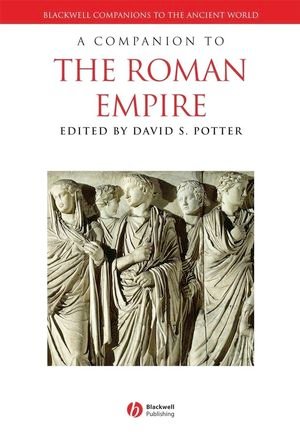Description
The Blackwell Companion to the Roman Empire, edited by David S. Potter, is a scholarly book that provides a comprehensive overview of various aspects of the Roman Empire. As part of the Blackwell Companions series, it is designed to offer an in-depth exploration of Roman history, culture, and influence, making it an essential resource for students, scholars, and enthusiasts of ancient history.
Overview
This volume is a collaborative effort featuring contributions from various experts in Roman history. It covers a broad range of topics related to the Roman Empire, offering detailed analyses of its political structures, military organization, social dynamics, and cultural achievements.
Key Sections and Topics
1. Historical Background
- Foundations of Rome: The book begins with an exploration of Rome’s origins, from its legendary founding through the early Republic.
- Empire Formation: It discusses the transition from Republic to Empire, focusing on key figures like Julius Caesar and Augustus, and the establishment of the imperial system.
2. Political and Administrative Structures
- Republican Governance: Details the functioning of Roman republican institutions, including the Senate and various magistracies.
- Imperial Administration: Examines the evolution of the imperial government, including the role of the Emperor, the Senate, and provincial governance.
3. Military and Warfare
- Military Organization: Provides insights into the structure and strategy of the Roman military, including the role of legions and auxiliary troops.
- Major Campaigns: Discusses significant military campaigns and conflicts, including the expansion into Britain and the wars against Parthia.
4. Society and Culture
- Social Structure: Explores Roman social classes, including the patricians, plebeians, and slaves, and how these classes interacted and evolved.
- Daily Life: Looks at various aspects of daily life in Rome, from urban living conditions to rural experiences.
- Cultural Contributions: Analyzes Roman contributions to art, literature, and philosophy, featuring notable figures such as Virgil, Ovid, and Seneca.
5. Religion and Beliefs
- Religious Practices: Covers the Roman pantheon, religious rituals, and the role of religion in both public and private life.
- Imperial Cult: Discusses the practice of deifying emperors and its impact on Roman society.
- Transition to Christianity: Examines the rise of Christianity and its official adoption during the reign of Constantine.
6. Art and Architecture
- Architectural Achievements: Details Roman innovations in architecture, including the construction of monumental structures such as the Colosseum and aqueducts.
- Artistic Expression: Discusses Roman contributions to sculpture, mosaic work, and other forms of visual art.
7. Economy and Trade
- Economic Structure: Provides an overview of the Roman economy, including agriculture, trade, and currency.
- Trade Networks: Describes the extensive trade networks that connected Rome with other regions, facilitating economic and cultural exchange.
8. Legacy and Influence
- Cultural Impact: Analyzes the lasting influence of Roman culture on subsequent civilizations, including contributions to legal systems, language, and urban planning.
- Historical Interpretations: Reflects on how the Roman Empire has been interpreted over time and its relevance to modern discussions about empire and governance.
Additional Features
- Maps and Illustrations: The book includes maps and illustrations to help visualize the geographical and architectural aspects of the Roman Empire.
- Primary Source Excerpts: Features excerpts from ancient texts and inscriptions that provide direct insights into Roman life and governance.
- Bibliographies: Includes bibliographies and suggestions for further reading, guiding readers to additional resources for deeper study.
Target Audience
The Blackwell Companion to the Roman Empire is intended for:
- Students and Academics: It serves as a valuable resource for those studying Roman history or related fields, offering detailed and scholarly analyses.
- History Enthusiasts: General readers with an interest in ancient Rome will find the book accessible yet thorough in its coverage.
- Researchers: The book is a useful reference for researchers seeking comprehensive information on various aspects of the Roman Empire.
Conclusion
The Blackwell Companion to the Roman Empire is a crucial resource for anyone seeking a deep and nuanced understanding of the Roman Empire. Edited by David S. Potter, this companion provides a well-rounded examination of Roman history, culture, and influence through contributions from leading experts in the field. Whether you are a student, scholar, or history enthusiast, this book offers valuable insights into one of history’s most influential civilizations.




Reviews
There are no reviews yet.